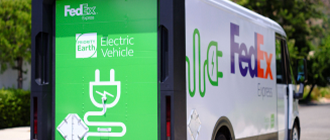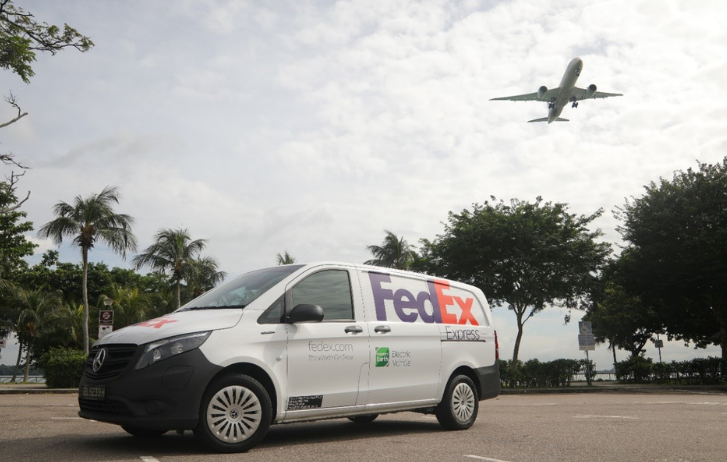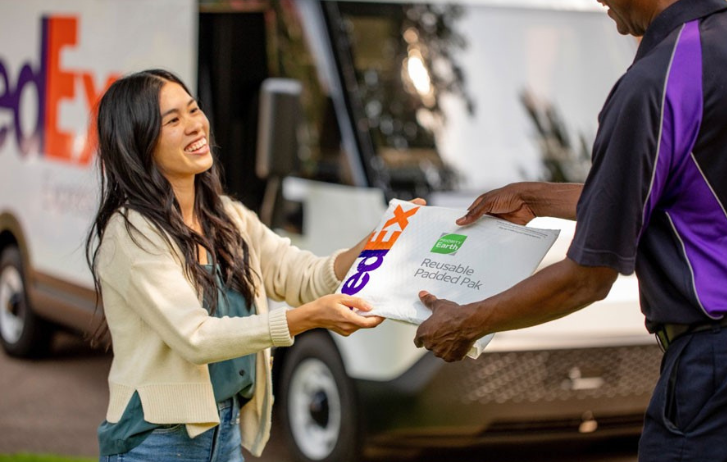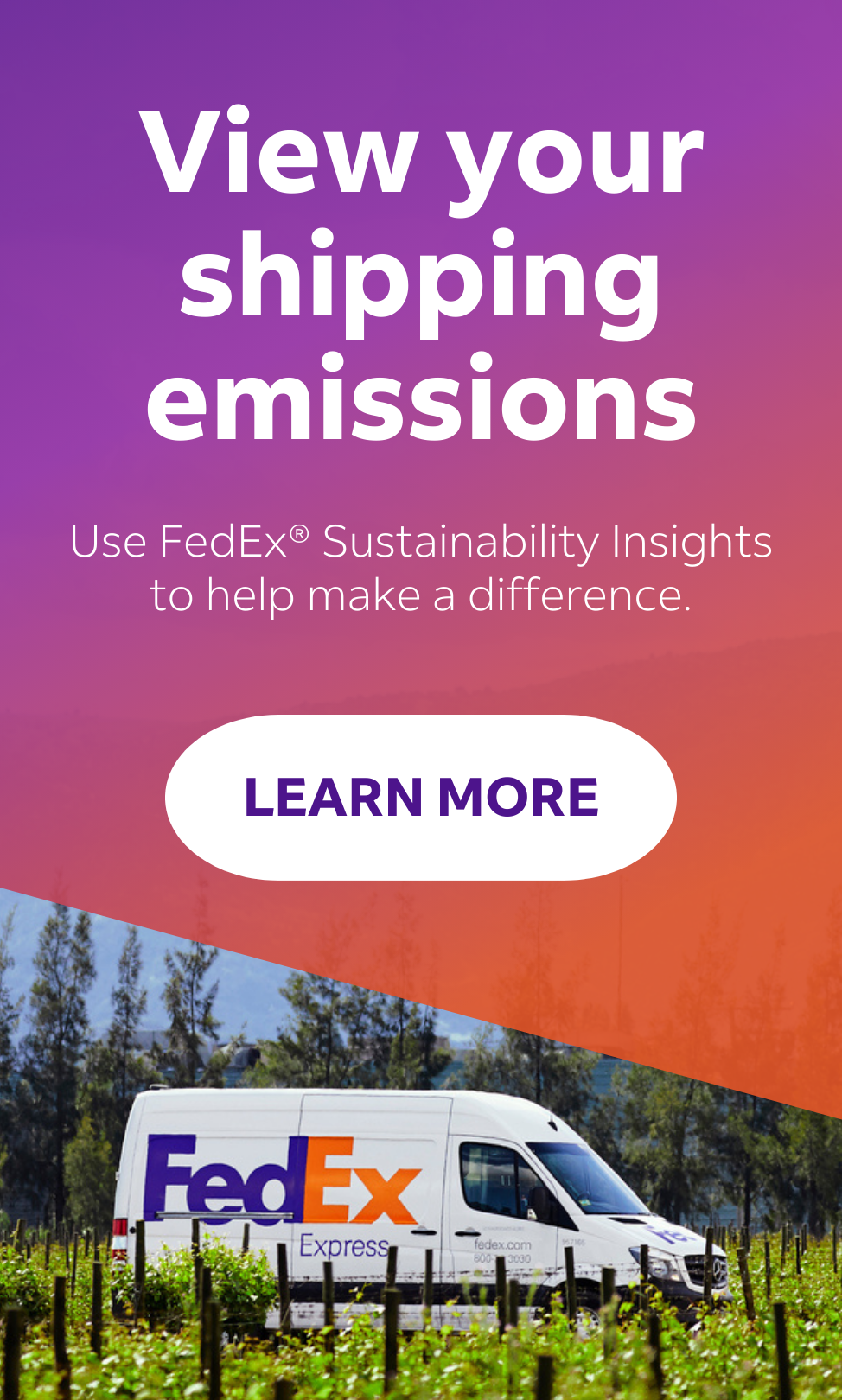
How To Build Resilient And Sustainable Supply Chains
By FedEx | September 29, 2023
Stable, resilient supply chains stand the test of time. A transformative and sustainable approach is required to ensure longevity.
The global COVID-19 pandemic resulted in 3 years of widespread supply chain disruption in global logistics and posed unprecedented challenges to businesses small and large. It also triggered the need for businesses to develop supply chains that are both resilient to crisis and prioritize sustainability as a vital long-term business strategy.
At a recent Reuters - Responsible Business Asia conference on “Delivering Sustainable Leadership In A Time Of Turbulence,” FedEx shared how organizations develop their strategies and goals to achieve business resilience.
Resilience is key
If the past few years have taught us anything, it’s that resilience is key. It’s also taught us that sustainability is not just the right thing to do; it’s also about economic advantage. Earlier this year, we celebrated our 50th anniversary, and sustainability has always been integral to our purpose. At heart, we understand that the future of our business is closely tied to the future of our environment.
As a result, we’re working hard to be more sustainable, and consistently supporting our customers to be more sustainable and socially aware in their operations, too. Harnessing technology to innovate for sustainability has been a key focus, whether it be electric vehicles or more energy-efficient facilities and infrastructure.
Our goal is to continue to build a sustainable logistics network around the world that’s flexible, efficient, and intelligent.
Leadership in a transformed world
As one of the world’s largest logistics providers, customers relied on us more than ever during the pandemic. Lockdowns forced a shift in how we delivered, and we moved swiftly to contactless deliveries wherever possible.
Our response needed to be three things: agile, proactive and resilient. Since the beginning of the pandemic, we were taking action to support recovery efforts, including the delivery of vaccines, therapeutics, test kits, and supplies – some of the most important work in the history of our company.
We also recognize the importance of taking action in addressing climate issues to more positively impact the industry and communities. In fact, the pandemic didn’t slow down our sustainability efforts. In March 2021, we set an ambitious global goal to achieve carbon-neutral operations by 2040, 10 years ahead of the timeline laid out by the Paris Climate Agreement.
Looking back, it’s evident that the pandemic helped the world come together as one and reminded us of the importance of building a sustainable future with a sense of purpose and a shared vision.
A sustainable approach to supply chain management
Our roadmap to carbon neutrality by 2040 includes a common strategy woven throughout our sustainability efforts: reduce, replace, and revolutionize. By focusing on reducing emissions and waste, and replacing older technologies and vehicles with more energy efficient ones, we’re revolutionizing our operations with the power of new technologies.
To support this, we’re investing $2 billion in three major areas: electrifying pickup and delivery fleet, sustainable energy investments, and carbon sequestration.
In terms of vehicle electrification, we aims to have 50% of new FedEx Express pick-up and delivery vehicle purchases be electric by 2025. By 2030, the aim is to make that 100%.
Already, across the AMEA region, we’re introducing more electric vehicles (EVs) into our network. In China, we have more than 460 EVs, approximately 13% of the country’s fleet. We’re also boosting EVs in South Africa, India, and Japan, and have introduced our first zero-tailpipe emission EVs in Thailand as well as launched EV trials in Malaysia and the UAE.
When it comes to achieving true sustainability in aviation, we’re taking a long-term, multi-faceted approach which includes investing in aircraft modernization, advocating for the scaling up of sustainable aviation fuels, and pledging $100 million to Yale University to establish the Yale Center for Natural Carbon Capture to accelerate research into methods of carbon sequestration.
Sustainable packaging is another key focus, given that around 16 million packages pass through FedEx facilities each day. In fact, 100% of FedEx packaging is now recyclable, and 49% is made from recycled materials. Our global FedEx Packaging Lab also offers free packaging consultations and testing to business account holders interested in developing their own sustainability packaging.
Any business aiming to make an impact in sustainability need data-driven insights to inform ESG strategies. One tool they can use is FedEx® Sustainability Insights, which uses near-real-time FedEx network data to estimate CO2e emissions. Customers can also download reports to access information they need to gain better visibility of emissions within their supply chains and support reporting and strategic future planning.
Harnessing advanced technologies and the power of data
Finally, we’re also developing new, digitally-led products that fit a mobile-first world to create greater convenience for customers. Solutions like Picture Proof Of Delivery, and integrating WhatsApp notifications to let customers chat with us directly provide added convenience.
In markets like Singapore and China, we have introduced AI-powered robotic sorting arms at sorting centers and hubs to drive overall operational efficiency and continue building a smart logistics network.
Looking ahead, we will continue to revolutionize our operations and invest in breakthrough technologies. Sustainability is now a core strategic consideration for businesses to succeed. We’re going all in to lead the way towards a more resilient future for everyone.
Learn more about our sustainability initiatives and latest news here.
SHARE THIS STORY
- How To Make Freight Shipments Work For Your Small Business
- Where Do Old Planes Go When They Retire?
- Southeast Asia: The Next Manufacturing Powerhouse?
- 8 Most Unusual Shipments In The History Of FedEx
- How To Ship A Giant Panda
- The Rise Of Intra-Asia Trade: Opportunities In The China-Southeast Asia Corridor
Sign up now and save on your shipping rates!
Sign up now and earn discounts by shipping instantly with FedEx Ship ManagerTM at fedex.com.
Recommended For You

A New And Sustainable Future At FedEx
As companies move towards sustainable business practices, FedEx APAC President Kawal Preet discusses ESG initiatives in Asia Pacific.
Read More
How EVs Are Driving Towards A More Sustainable Future
Driving towards our goal of achieving carbon neutral operations by 2040, we’ve been busy testing and deploying zero-emission electric vehicles.
Read More
4 Steps To Building A Sustainable Supply Chain
To create business advantage and build a greener future SMEs and businesses are identifying ways to make their supply chain networks more sustainable.
Read More

